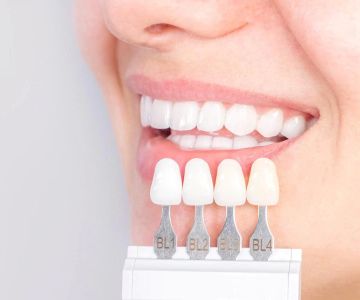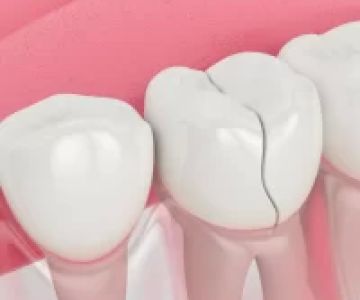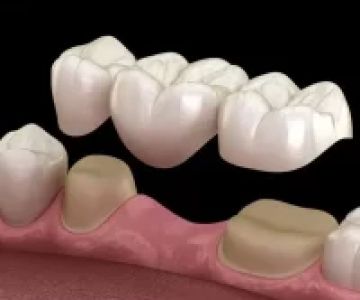Teeth Care for Pregnant Women: Essential Tips for Maintaining Oral Health During Pregnancy
- Why Teeth Care During Pregnancy Is Important
- Common Oral Issues During Pregnancy
- Best Practices for Oral Care During Pregnancy
- Foods for Healthy Teeth During Pregnancy
- Visiting the Dentist During Pregnancy
1. Why Teeth Care During Pregnancy Is Important
Pregnancy brings many changes to a woman’s body, including changes to oral health. Proper teeth care during pregnancy is essential to prevent oral problems that can affect both the mother and the baby. Hormonal changes can increase the risk of gum disease, cavities, and other dental issues, making it more important than ever to maintain good oral hygiene.
In fact, studies have shown that poor oral health during pregnancy can lead to complications such as preterm birth and low birth weight. Therefore, understanding the importance of teeth care for pregnant women can help ensure a healthier pregnancy and a safe delivery.
2. Common Oral Issues During Pregnancy
Pregnancy can bring several oral health challenges. Some of the most common issues include:
- Pregnancy Gingivitis: This condition causes inflammation and bleeding of the gums due to hormonal changes. It typically occurs during the second trimester and can worsen if left untreated.
- Tooth Sensitivity: Many pregnant women experience increased tooth sensitivity, often caused by changes in diet and acid reflux. This sensitivity can lead to discomfort while eating hot or cold foods.
- Increased Risk of Cavities: Pregnant women may experience a higher risk of cavities due to changes in dietary habits and the acidity in the mouth. Consuming sugary foods more frequently can also contribute to this problem.
- Morning Sickness and Enamel Erosion: Morning sickness, which affects many pregnant women, can lead to frequent vomiting. The acid from vomiting can erode tooth enamel, making teeth more vulnerable to decay.
3. Best Practices for Oral Care During Pregnancy
Taking care of your teeth during pregnancy is simple but essential. Here are some best practices for maintaining your oral health:
- Brush and Floss Regularly: Brush your teeth at least twice a day with fluoride toothpaste and floss daily to remove plaque and food particles. This helps prevent gum disease and cavities.
- Use a Soft-Bristled Toothbrush: A soft-bristled toothbrush will be gentle on your gums and teeth, reducing irritation, especially if you are dealing with pregnancy gingivitis.
- Stay Hydrated: Drinking plenty of water throughout the day helps wash away food particles and bacteria, reducing the risk of cavities.
- Use an Antiseptic Mouthwash: Rinsing with an antiseptic mouthwash can help kill bacteria in the mouth, reducing the risk of infection and gum disease.
4. Foods for Healthy Teeth During Pregnancy
What you eat during pregnancy plays a crucial role in maintaining your oral health. Here are some foods that can help strengthen your teeth:
- Dairy Products: Dairy products like milk, cheese, and yogurt are rich in calcium, which is essential for healthy teeth and bones. They also help neutralize acids in the mouth.
- Leafy Greens: Leafy greens like spinach and kale are packed with vitamins and minerals, including folic acid, which can help prevent gum disease.
- Apples and Pears: These fruits are high in fiber and water, which help stimulate saliva production, a natural defense against tooth decay.
- Carrots and Celery: Crunchy vegetables like carrots and celery help clean teeth while providing important nutrients like vitamin A.
5. Visiting the Dentist During Pregnancy
Regular dental visits are crucial for maintaining oral health during pregnancy. Here are some tips for visiting the dentist while pregnant:
- Schedule a Check-Up: Visit your dentist early in your pregnancy for a routine check-up and cleaning. Regular dental visits can help catch problems early.
- Inform Your Dentist: Make sure to inform your dentist about your pregnancy, so they can tailor treatments accordingly. Some procedures, like X-rays, may need to be postponed or avoided during pregnancy.
- Address Dental Issues Promptly: If you experience pain or other dental issues during pregnancy, don’t delay seeking treatment. Ignoring oral health problems can lead to more serious complications.







 Advanced Family Dental & Orthodontics4.0 (216 review)
Advanced Family Dental & Orthodontics4.0 (216 review) Eagle Family Smiles4.0 (286 review)
Eagle Family Smiles4.0 (286 review) Artistic Dental - Dr. Miriam Bookman & Dr. Jason Goldberg4.0 (442 review)
Artistic Dental - Dr. Miriam Bookman & Dr. Jason Goldberg4.0 (442 review) Doc Bresler's Cavity Busters4.0 (524 review)
Doc Bresler's Cavity Busters4.0 (524 review) Park Dental4.0 (45 review)
Park Dental4.0 (45 review) 123 Smile Dental Care4.0 (42 review)
123 Smile Dental Care4.0 (42 review) The Importance of Oral Health Education During Pregnancy for a Healthy Pregnancy
The Importance of Oral Health Education During Pregnancy for a Healthy Pregnancy Best Tips for Brushing Your Teeth Properly for Healthy Gums: Essential Techniques for Oral Health
Best Tips for Brushing Your Teeth Properly for Healthy Gums: Essential Techniques for Oral Health Why Skipping Dental Checkups Can Lead to Bigger Oral Health Problems
Why Skipping Dental Checkups Can Lead to Bigger Oral Health Problems Advantages of Porcelain Dental Restorations
Advantages of Porcelain Dental Restorations How Can Diabetes Cause Tooth and Gum Problems? Preventing and Managing Oral Health Issues
How Can Diabetes Cause Tooth and Gum Problems? Preventing and Managing Oral Health Issues Healthy Habits for Promoting Good Oral Health and Hygiene: Tips for a Healthy Smile
Healthy Habits for Promoting Good Oral Health and Hygiene: Tips for a Healthy Smile